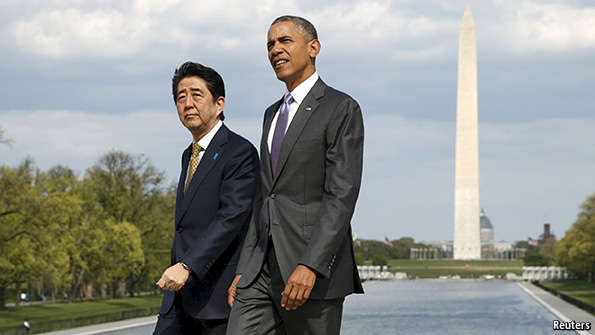President Obama’s trade battle
A GROUP of politicians in Washington wants to stop President Barack Obama from doing what he wants. Same old story, you might think. This time, though, it is not Republicans who are proving obstructive, but members of the president’s own party. Mr Obama itches to sign the Trans-Pacific Partnership (TPP), a trade deal that would link 11 economies of the Pacific rim—including Japan and Singapore, but not China—with America. The deal would reduce tariffs and, more importantly, harmonise regulations between the countries to make trading easier. Most Republicans love the idea. But many Democrats don’t. Sandy Levin, a Democratic congressman, growls that he is “out to defeat” Mr Obama’s plans. What is the disagreement all about?
Congressional Republicans and Mr Obama argue that by boosting exports, the deal would make America richer. According to one estimate, by 2025 the TPP would raise American incomes by 0.4% per year. The public largely agrees with the president: 58% of Americans see free trade mostly as an opportunity—a figure that has risen 17 percentage points since the recession—with Democrat voters keener on free trade than Republicans. (This may be because Democrats are more likely to be in jobs that benefit from globalisation.) There is a helpful geopolitical component, too: the TPP could help America retain its sway in Asia. If the 12 TPP countries plump for common trade standards, then those rules—crucially, not China’s—could function in effect as global ones, given the big chunk of world GDP they would govern.
Read more: http://www.economist.com/blogs/economist-explains/2015/05/economist-explains-1

